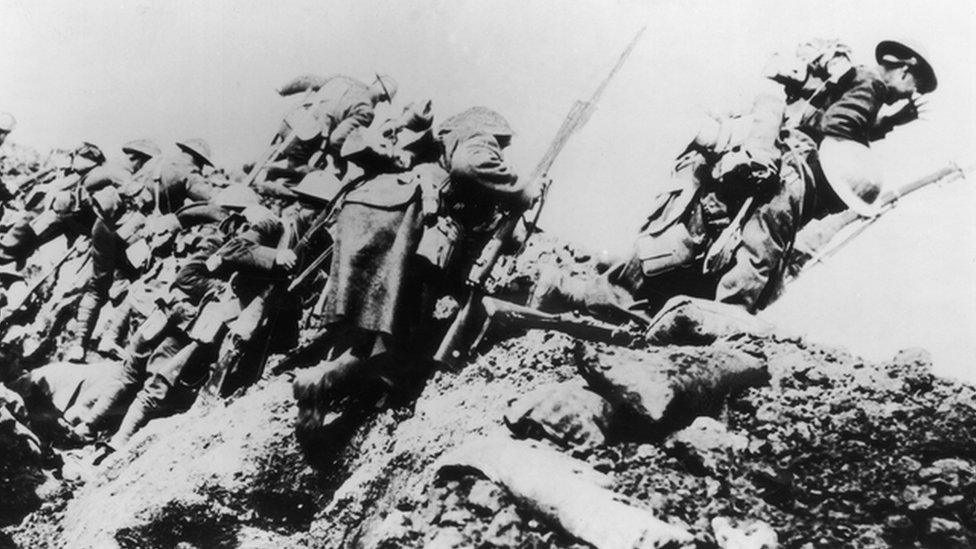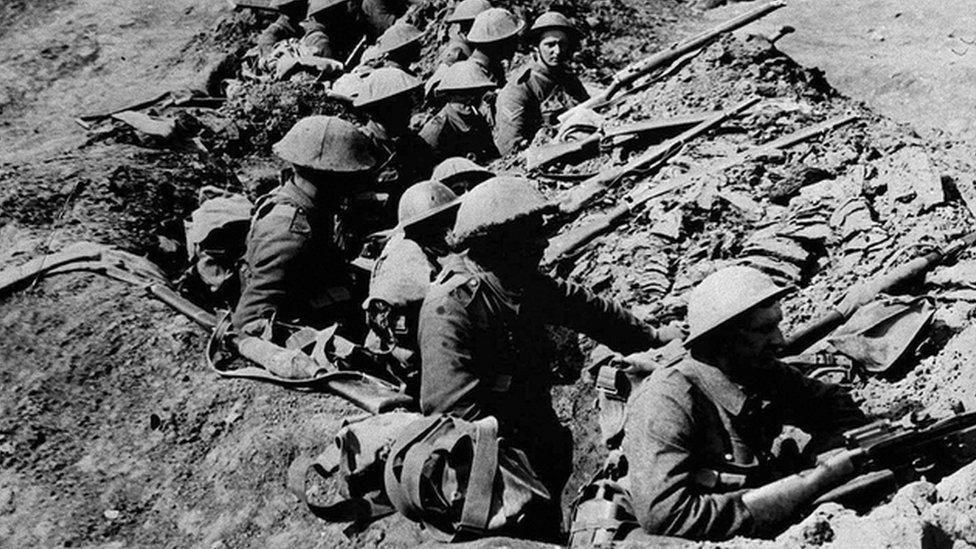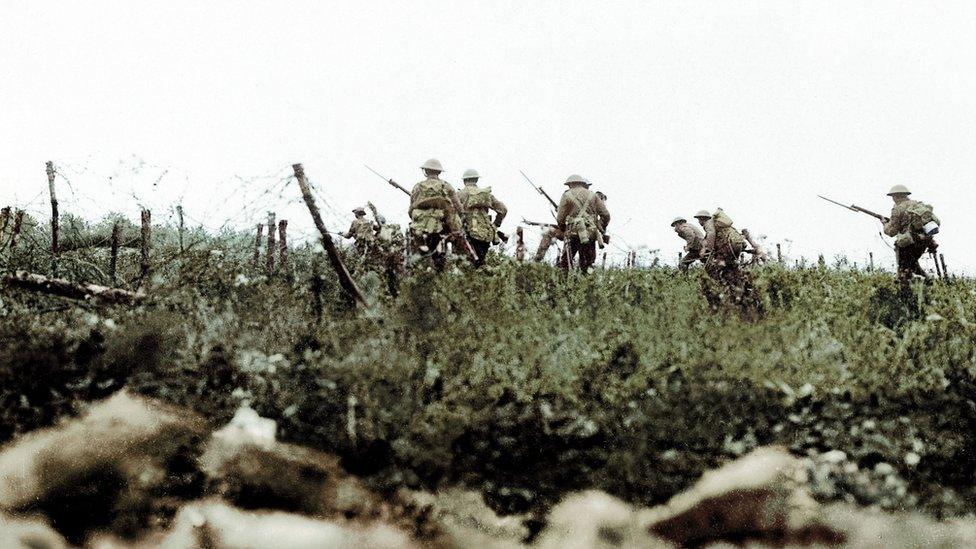Communities urged to mark Battle of the Somme centenary
- Published

Villages, towns and cities are being invited to organise their own remembrance events
Communities across the UK are being encouraged to hold vigils to mark the centenary of World War One's Battle of the Somme.
The government and the Royal British Legion are inviting villages, towns and cities to organise their own remembrance events alongside national and international commemorations.
It is hoped evening vigils will be held on 30 June or on 1 July.
There were more than 600,000 British and French casualties in the battle.
'Never forget'
The Right Reverend Nigel McCulloch, head of remembrance at the Royal British Legion, said the Battle of the Somme had "come to symbolise the tragic scale and futility of modern industrialised warfare".
He said losses were felt by almost every community in the UK and Commonwealth.
"Their collective sacrifice is as relevant today as ever, but in this centenary year we pay special tribute to their service," he said.
The vigils are intended to mirror the apprehension of those in the conflict 100 years ago as they waited in the trenches for "zero hour" at 07:30 when they went "over the top".
The Royal British Legion has created a "toolkit", external with ideas for organising vigils and the government has launched an online guide, external on remembrance events.
They suggest that people could gather at meaningful places or in their own homes, lighting candles, reading poems or listening to music and sharing photographs of relatives who fought in the battle.

There were more than 600,000 British and French casualties in the battle
Culture Secretary John Whittingdale said: "The Battle of the Somme left a deep mark on millions of families 100 years ago.
"It is important that we never forget what happened on the battlefields and honour their memory and bravery for generations to come."
National events to mark the centenary were announced last year.
These include a national vigil on 30 June at Westminster Abbey, London, and overnight events in Edinburgh, Cardiff and County Down.
There will also be a commemorative service on 1 July at Manchester Cathedral.
The Battle of the Somme began on 1 July 1916 and there were more than one million casualties on both sides by the time it ended after 141 days on 18 November 1916.
- Published20 November 2015

- Published28 September 2015
